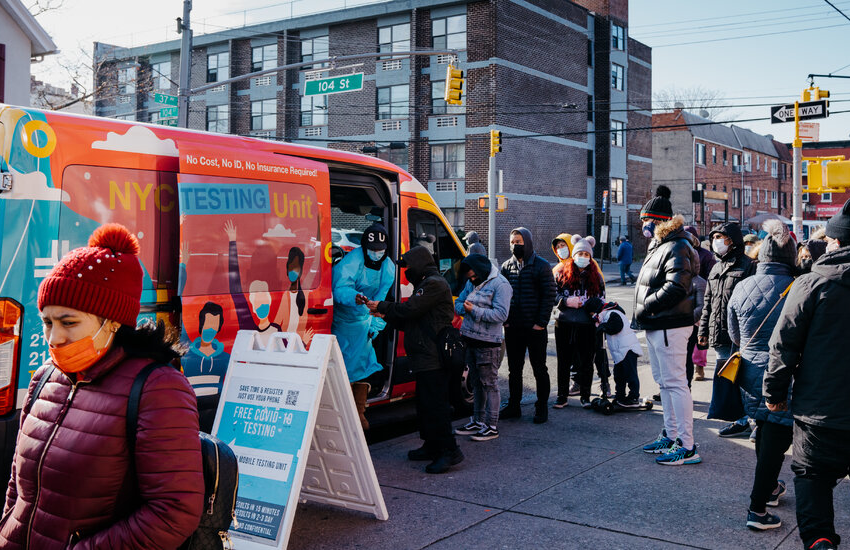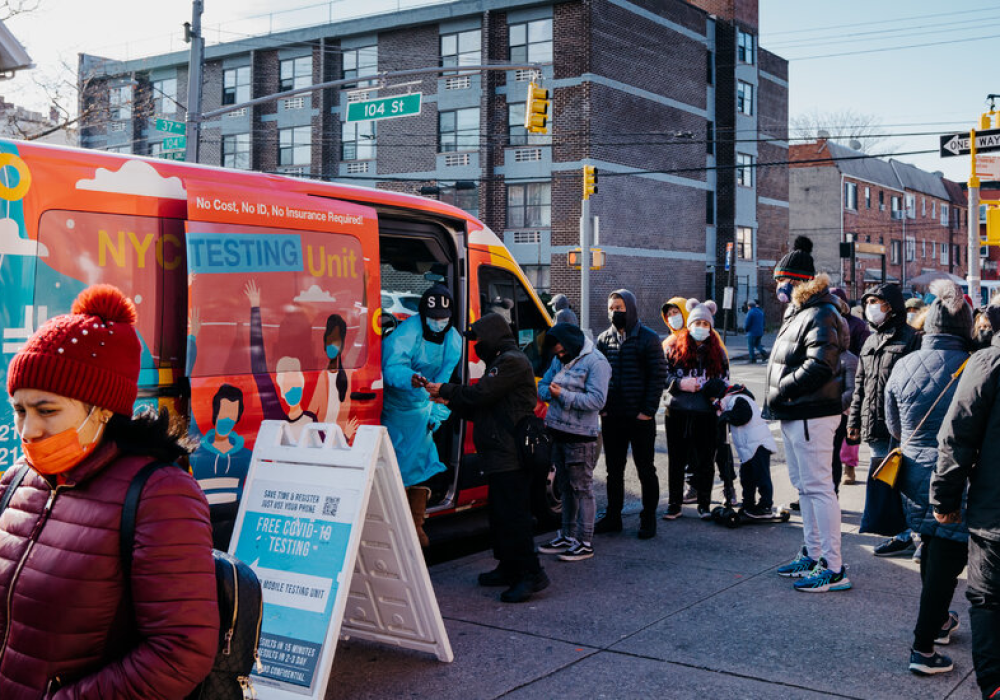
Flight disruptions in the United States continued on Monday as many people embarked on their first trips in almost two years, and Dr. Anthony S. Fauci, the nation’s top infectious disease expert, again raised the possibility of a vaccination requirement for air travel.
At least 2,600 more flights were canceled Monday, including about 1,000 U.S. flights, as the highly transmissible Omicron variant is sending daily caseloads in parts of the United States soaring to levels higher than last winter’s pandemic peak.
While the cancellations were only a small percentage of overall flights, the problem threatened to extend into the holiday week.
“When you make vaccination a requirement, that’s another incentive to get more people vaccinated,” Dr. Fauci said on MSNBC on Monday. “If you want to do that with domestic flights, I think that’s something that seriously should be considered.”
Over the holiday weekend, airlines canceled thousands of flights as the Omicron variant hit flight crews. In all, about 2,300 U.S. flights were canceled on Saturday and Sunday of the Christmas holiday weekend, with more than 3,500 more grounded globally, according to FlightAware, which provides aviation data. On Sunday alone, more than 1,300 U.S. flights and nearly 1,700 additional ones worldwide were canceled.
While some of the groundings were caused by bad weather and maintenance issues, several airlines acknowledged that the current wave of coronavirus cases, contributed significantly. A JetBlue spokesman said that the airline had “seen an increasing number of sick calls from Omicron.”
Twelve percent of JetBlue flights, 6 percent of Delta Air Lines flights, 5 percent of United Airlines flights and 2 percent of American Airlines flights on Sunday had been canceled, according to FlightAware.
The stock prices of United, Delta, American and Southwest — the four largest U.S. carriers — were slightly lower on Monday.
Traveling rebounded sharply this year, making the situation at airports worse: Roughly two million people passed through screening checkpoints each day last week, according to the Transportation Security Administration, and on Sunday. The numbers on Christmas Eve and Christmas Day were much higher than last year, and some figures even exceeded those of the same days two years ago, when virtually no Americans were aware of a virus beginning to circulate halfway around the world.
The Omicron variant, which is now responsible for more than 70 percent of the new coronavirus cases in the United States, has already helped push daily case averages in the United States above 200,000 for the first time in nearly 12 months, according to The New York Times’s coronavirus tracker.
An airline trade group has asked the Centers for Disease Control and Prevention to shorten the recommended isolation period for fully vaccinated employees who test positive to a maximum of five days, from 10 days, before they can return with a negative test.
“Swift and safe adjustments by the C.D.C. would alleviate at least some of the staffing pressures and set up airlines to help millions of travelers returning from their holidays,” said Derek Dombrowski, a JetBlue spokesman.
The flight attendants’ union, however, has argued that reductions in recommended isolation times should be decided on “by public health professionals, not airlines.”
Some of this weekend’s delays had little to do with the pandemic. Alaska Airlines had only a few cancellations related to crew exposures to the coronavirus, according to a spokeswoman, Alexa Rudin. Yet it had canceled 170 flights those two days, according to FlightAware, including 21 percent of its Sunday flights, because of unusually cold and snowy weather in the Pacific Northwest, which affected its hub, Seattle-Tacoma International Airport.
The pandemic has also caused a shortage of train and bus workers nationwide. In New York City, the Metropolitan Transportation Authority is also dealing with an uptick in positive cases among its staff, which is 80 percent vaccinated. It said that subway service on Monday was running on a normal schedule, with scattered exceptions.
“Whatever we can do as riders to help minimize the risk to transit workers will help to reduce the spread,” said Lisa Daglian, the executive director of the Permanent Citizens Advisory Committee to the M.T.A., a watchdog group. “The M.T.A. is doing what it can with the resources it has available.”
Danny Pearlstein, a spokesman for the Riders Alliance, an advocacy group, said: “My sense is the M.T.A. is once again making the best of a bad situation.”



